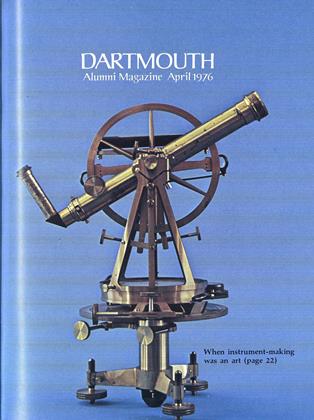After a rich and varied career of teaching, research, writing, consulting, lecturing, pleading, and cajoling about the problems and choices facing our modern urbanized society, H. Wentworth Eldredge has drawn upon a wealth of professional experience to produce a thoughtful, powerful, and extremely significant study to help guide us toward a more sane urban future.
World Capitals is divided into three major segments. The first chapter, written by Professor Eldredge, is an extraordinarily comprehensive overview of where our cities came from and what they face in the years ahead. At the outset Eldredge asserts "man as yet is hardly a very successful city-building animal. Perhaps he just lacks experience." Using the time-clock equivalent of one million years to 24 hours, he points out that only the final ten seconds of man's existence on earth have been spent in the modern industrial city. Projecting future trends to the year 2000, he warns that the world's urban population will increase three-fold to three billion people. The needs are staggering: over 1,000 million new urban and rural dwellings and 2,000 million new modernized work places. The choices we face here are awesome.
The second major segment of the book consists of essays by different individuals on 11 world capitals drawn from the western old world, the western new world, the non-western world, and the developing nations. The areas analyzed in detail are Stockholm, Paris, London, Washington, Toronto, Caracas, Moscow, Tokyo, Chandigarh, Brasilia, and Dakar.
The book's final segment, again by Eldredge, attempts to evaluate lessons gained from these 11 capital cities and to project what actions we should take to correct past mistakes. He feels the key. lesson is that the 11 cities are "neither efficient nor particularly handsome, nor do they all support a human life of warmth, style, and quality." These inadequacies stem from deficiencies in governmental organization and structure, and from inadequate funding, economic development, planning, housing, community, recreation, and culture.
The author concludes that the best hope to overcome these failures is to explore systematically alternative urban futures. For the United States, he proposes a program that will lead to the establishment of a national urban plan and delivery system. Such planning should be comprehensive and flexible, making full use of new technologies and social indicators, and implemented by means of a rewards system of psychic, investment, and financial incentives.
While a book of this importance has a great deal to offer, two aspects are particularly noteworthy. First, since it is literally based on a lifetime of observation and experience, it serves as an invaluable resource work, encyclopedic in the sweep of its references, bibliography, and observations on urbanization and planning. Second, Eldredge's warnings and advice in the concluding three chapters are compelling. We do face terribly important choices, and we can shape the kind of world we want to live in if we only have the wisdom and the will to do so. I can think of no better way to begin this process than through reading, and pondering upon, the issues and potential answers that are set forth in this book.
WORLD CAPITALS: TOWARDGUIDED URBANIZATION. ByProfessor Emeritus H. WentworthEldredge '31. Anchor/Doubleday,1975. 642 pp. $19.95.
Professor Smallwood, whose career hasculminated to date with positions as vice president for student affairs at Dartmouth and fenceviewer for Norwich, is also co-chairman of Urban Studies.
 View Full Issue
View Full Issue
More From This Issue
-
 Feature
FeatureWORDS AND PICTURES MARRIED The Beginnings of DR.SEUSS
April 1976 By Edward Connery Lathem -
 Feature
FeatureStrangers in the House?
April 1976 By RAYMOND L.HALL -
 Feature
FeatureLap After Grim Lap, Note After Sparkling Note
April 1976 By DAVID M. SHRIBMAN '76 -
 Feature
FeatureTHE 18th century highboys of Benjamin Randolph's
April 1976 By ALLEN L. KING -
 Class Notes
Class Notes1975
April 1976 By GILBERT F. PALMER IV, FREDERICK H. WADDELL -
 Article
ArticleVox Clamantis et Clamantis; or College Bites Man
April 1976 By TERENCE R. PARKINSON '71
Books
-
 Books
BooksPeter S. Cardozo '39
December 1947 -
 Books
BooksEDITOR'S PICKS
NOVEMBER | DECEMBER 2015 -
 Books
BooksThe Bible and Universal Pease
By B.T. MARSHALL -
 Books
BooksTHE NEW CROSS-COUNTRY SKI BOOK.
JANUARY 1972 By DAVID BRADLEY '38, M. D. -
 Books
BooksTHIS WORLD OF NATIONS: FOUNDATIONS, INSTITUTIONS, PRACTICES
APRIL 1930 By Luther H. Evans -
 Books
BooksTHE LIFE OF ALCIBIADES
FEBRUARY 1930 By Royal C. Nemiah

